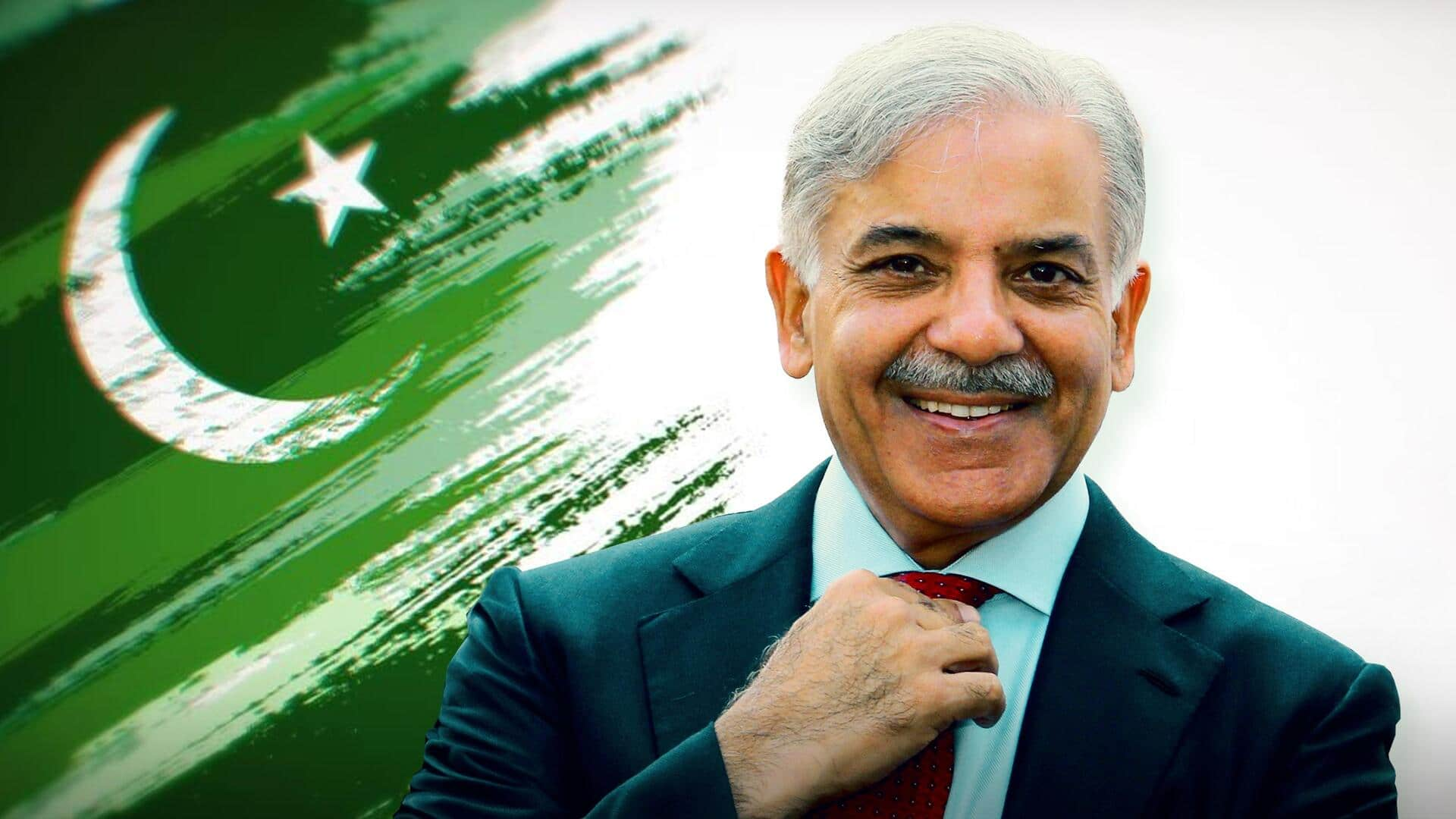
Sharif's 2nd stint as Pakistan PM begins: The challenges ahead
What's the story
Shehbaz Sharif was sworn in as Pakistan's 24th prime minister, taking over the reins of the cash-strapped country for a second time since 2022. The oath-taking ceremony came days after the Pakistan Muslim League-Nawaz (PML-N) and the Pakistan Peoples Party (PPP) agreed on a power-sharing deal to form a coalition government. Amid a fragile coalition, increasing resentment from former premier Imran Khan's supporters, an unprecedented economic crisis, and the constant threat of terror attacks, Sharif now faces an uphill task.
Context
Why does this story matter?
Experts have anticipated that the coalition government formed by the PML-N and the PPP will likely be unstable due to disagreements on governance. Madiha Afzal, a fellow at the Brookings Institution, has said that the Sharif government might be submissive to the Pakistani military, potentially harming democracy in the country. Adding to Sharif's challenges, the coalition allies have announced their intention to support the government only on a case-by-case basis.
Protests in Pakistan
Sharif labeled 'vote thief' as he returns to power
Minutes after Sharif was elected the PM, protests broke out in the Pakistan parliament, with several members displaying posters of jailed leader Khan and labeling Sharif as a "vote thief." Sharif proposed "reconciliation" in his initial speech and encouraged everyone to collaborate for Pakistan's improvement. However, PTI leaders said that they will be a formidable opposition with an agenda to bring their jailed leader back to the parliament.
Financial crisis
Economic instability and IMF bailout challenge
Pakistan is also currently battling the worst economic crisis in its history. Not only is it struggling with an inflation rate between 25-30% but also joblessness, and a debt burden that has left its citizens in despair. Currently, the country's growth rate is at 2%. Sharif has the task of obtaining another International Monetary Fund (IMF) bailout to stabilize the economy. This might necessitate implementing severe measures, such as increasing taxes, which could stoke public unrest.
Bailout package
Sharif set to negotiate extended IMF loan
With US$25 billion of external debt payments due in the fiscal year starting in July, Pakistan faces a financial challenge that is about three times its foreign exchange reserves. The country, under Sharif, plans to negotiate an Extended Fund Facility with the IMF, with discussions expected to begin in March-April. The Extended Fund Facility loans are generally approved for three to four years to support policies that address structural imbalances and are repaid after four-and-a-half to 12 years.
Law and order
Rising militancy and deteriorating security situation
In addition to economic and political challenges, the Sharif administration must tackle Pakistan's worsening security situation. Militant groups like Tehreek-e-Taliban Pakistan (TTP) and the Islamic State have escalated attacks on the country, especially in Khyber Pakhtunkhwa and Balochistan provinces. Approximately 400 civilians and 550 security personnel were killed in attacks in 2023. Meanwhile, separatism—particularly in the province of Balochistan—along with sectarian violence, also poses a grave threat to Pakistanis.
Background
Who is Shehbaz Sharif
Sharif, born on September 23, 1951 in Lahore, officially took office as Pakistan's PM on April 11, 2022, succeeding Khan, who was removed through a no-confidence motion. He is the younger brother of three-time PM Nawaz Sharif and has previously served as the leader of the opposition in the National Assembly. His political career—spanning decades—also includes multiple stints as Chief Minister of the Punjab province. In 2020, he was arrested on money laundering charges.